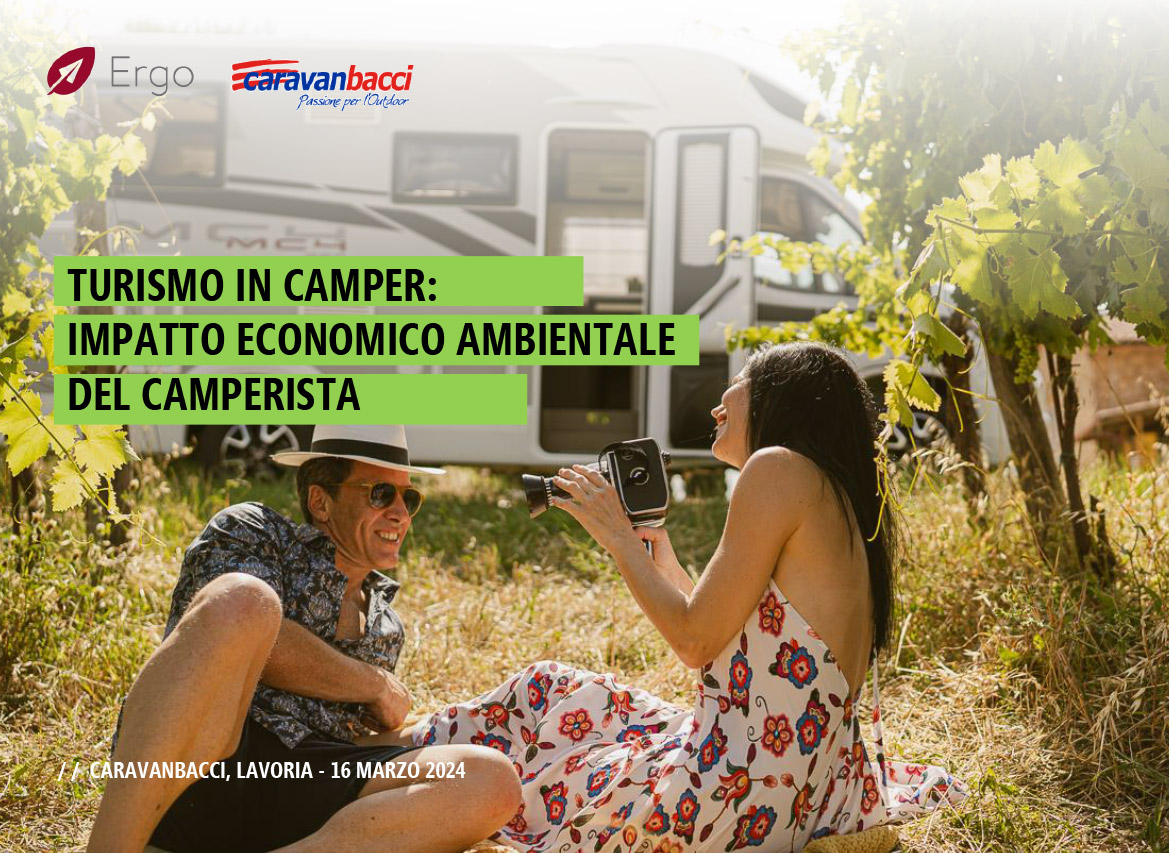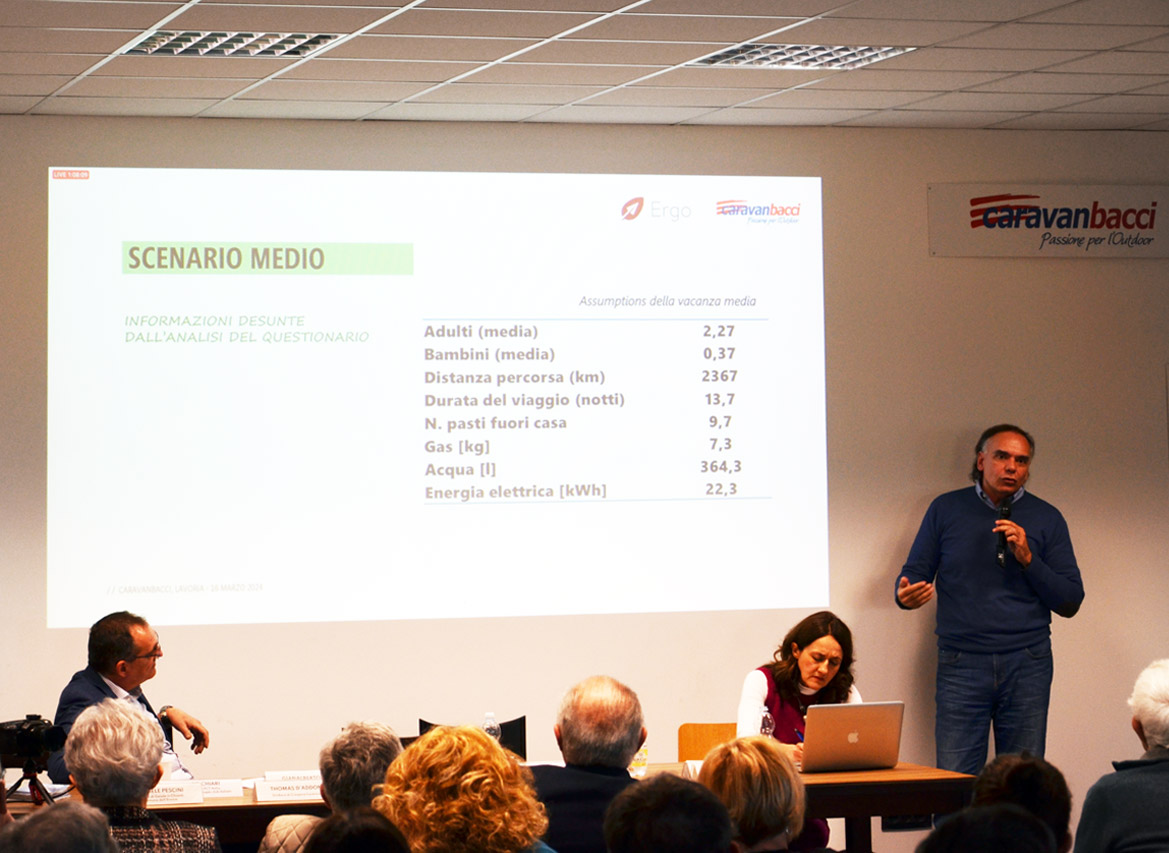Ergo presents the research on the economic and environmental impact of camper travelers
- 22 March 2024
- Blog & News, Environment, In Evidenza
- Posted by Enrico Citi
- Leave your thoughts
The Conference on Outdoor Tourism, held on March 16, 2024, at our company, featured the participation of Professor Fabio Iraldo from the Sant’Anna Institute, who presented the study on the environmental impact of camper vacations.
In recent years, the growing interest in outdoor tourism has led to an influx of new customers in the sector, driven by the need for freedom and safety. This increasing popularity has necessitated an accurate analysis of the current situation. The aim of the study was to understand the environmental impact of camper vacations, identify the profile of the camper traveler, and assess the economic impact of their visits on the territories.
How much does a camper pollute?
The results of the study showed that itinerant tourism represents a low environmental impact alternative compared to traditional vacations involving cars and hotels. During a typical 13-day camper trip, travelers eat meals outside the vehicle, cover distances, and consume gas, water, and electricity. Compared to vacations in cars and hotels, camper tourism generates lower emissions in terms of climate change, consumes fewer natural resources, and uses less water.

How much does a camper spend?
Equally interesting were the findings on camper habits: most travelers journey in pairs, prefer traveling in Italy, visit small villages and hidden spots, travel in summer, and enjoy tasting traditional local cuisine. The average daily expenditure of a camper traveler is approximately 97.80 euros, demonstrating that camper tourism is a cost-effective and sustainable alternative for both the environment and local economies.
Methodology
The methodology adopted in the study stands out for its reliability: instead of relying on estimates provided by participants, campers documented their experiences in travel diaries, allowing the collection of real data. The volume of data collected exceeded the minimum requirements for scientific publications, ensuring a comprehensive analysis of the phenomenon.
APC Rest Area Project
To address the growth needs of the sector, rest areas play a fundamental role. APC has made a design guide available, a valuable tool for those interested in investing in itinerant tourism.
This research represents a valuable resource, and we extend our sincere gratitude to Professor Fabio Iraldo and the Ergo company, a spin-off of the Sant’Anna Institute in Pisa, who made the data collection, analysis, and presentation possible.

Presentation of the study Help Us – Help You by Prof. Fabio Iraldo, professor of Management at the Scuola Sant’Anna of Pisa, where he leads the PhD in Innovation, Sustainability, and Healthcare.
Prof. Iraldo emphasized how the project represented an innovative step in the analysis of itinerant tourism, thanks to the use of rigorous methodological tools such as the LCA (Life Cycle Assessment), which quantified the environmental impact of camper vacations and compared it with traditional vacations. He also highlighted the importance of collaboration between academic research and industry operators to provide reliable data, useful for local administrators as well as companies.
A key point of the presentation was the detailed exploration of the identity of camper travelers: conscious travelers with a significant average daily expenditure of 97.80 euros, who prefer local products and substantially contribute to the economies of the territories they visit. This combination of low environmental impact and positive economic impact, according to the Professor, represents a unique opportunity to promote camper tourism as a model of sustainable development.
Prof. Iraldo concluded by stressing that the results of the study could be used not only to improve infrastructures and services for camper travelers but also to raise awareness in both the public and private sectors about the importance of investing in this form of tourism, which unites sustainability, economy, and the enhancement of local territories.